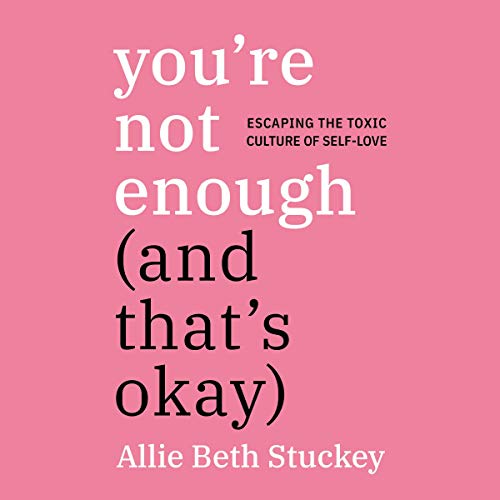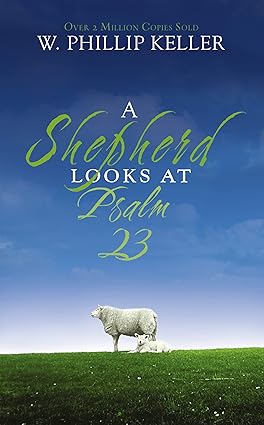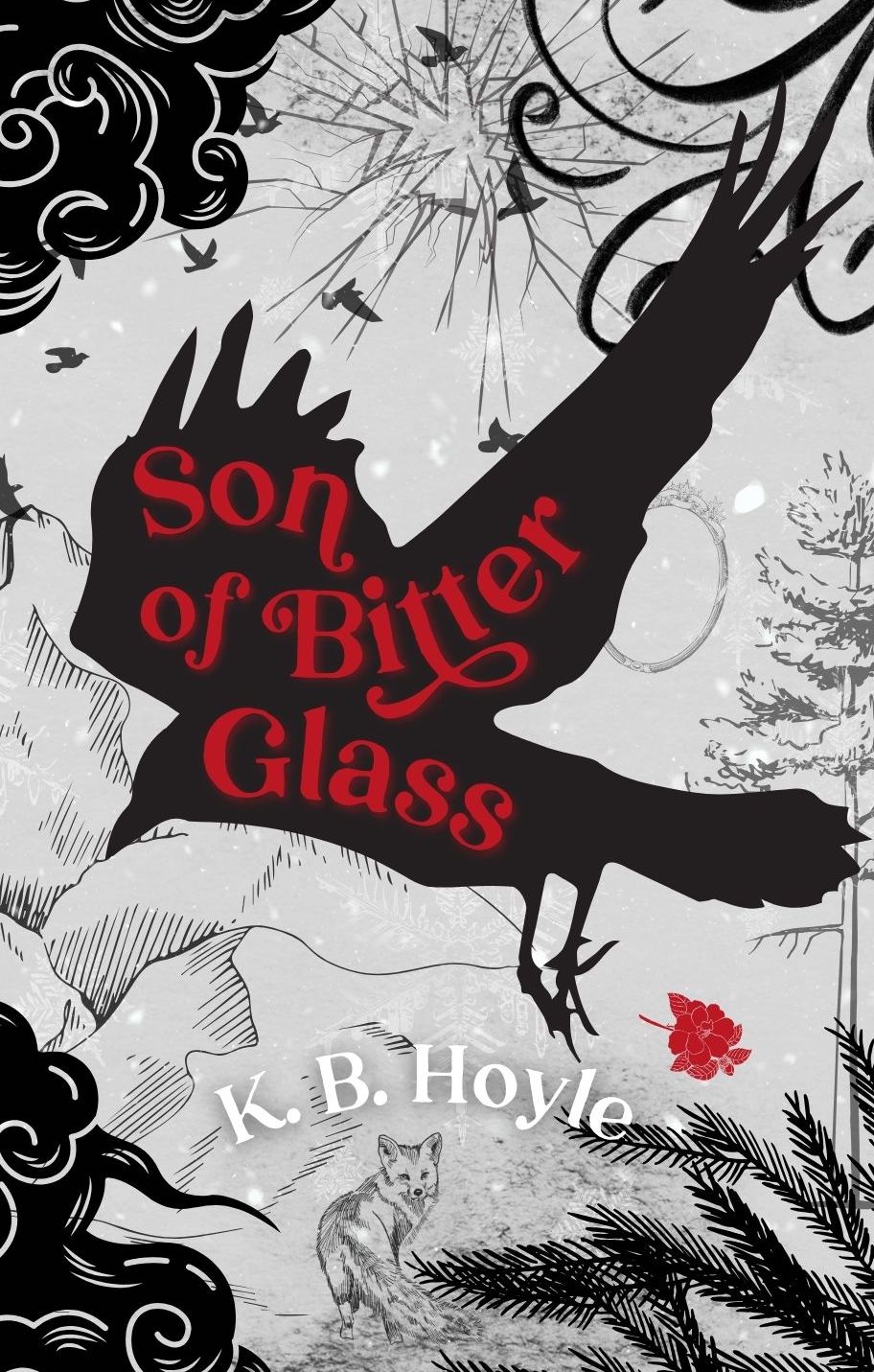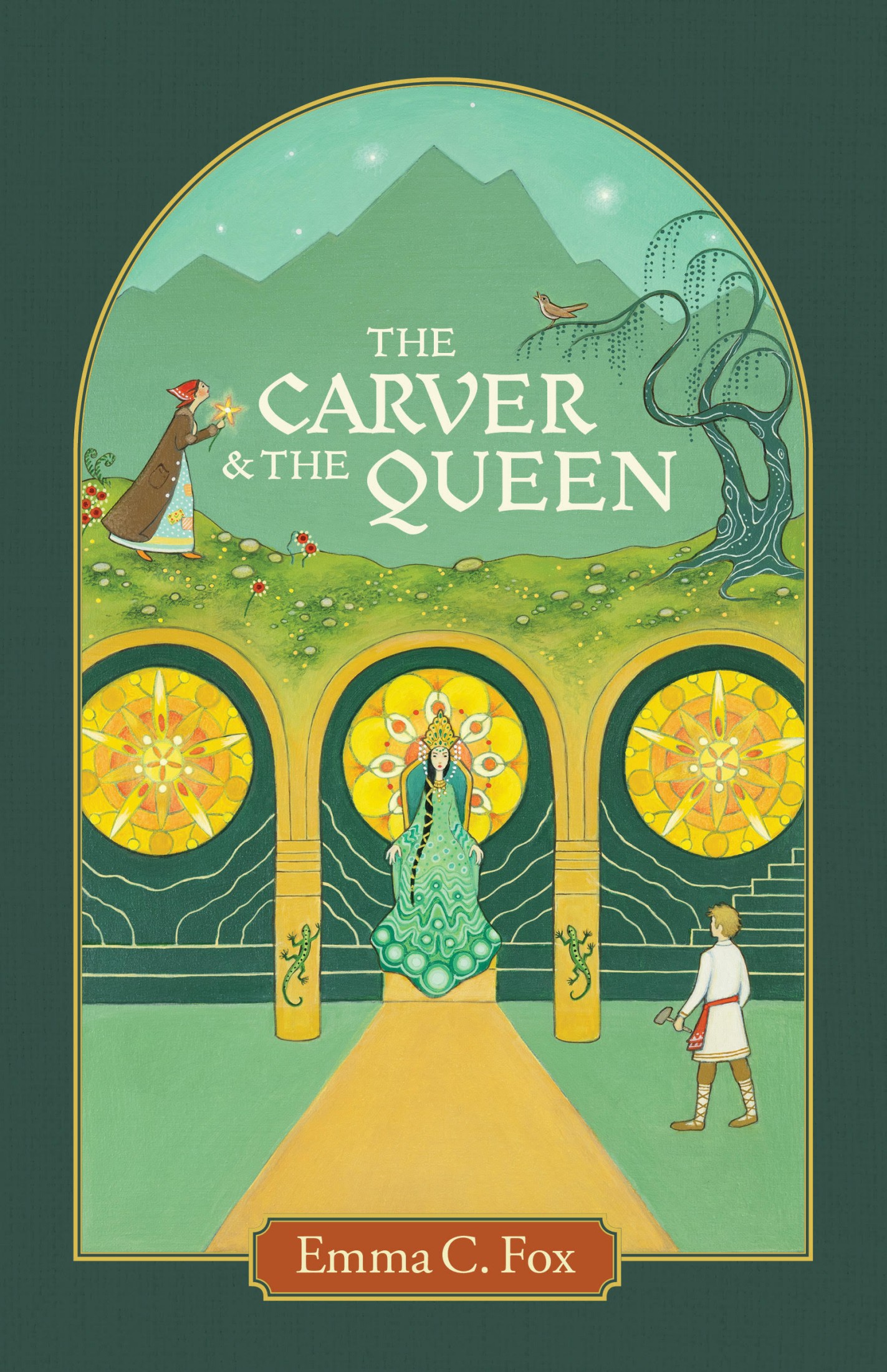. . . I put my faith on the back burner to “focus on myself”. I feared that if I turned to God after the breakup, he would make me sit in my sadness while he healed me. I just didn’t have the patience for that. It hurt too much. I wanted quick relief, even if it was fleeting.
Escaping the Toxic Culture of Self-Love
I’ve had this book on my shelf for several months. I know it’s a good book, and I knew I probably wouldn’t want to put it down once I started. For some reason it took me this long to read it. I don’t even know why. But now that I’ve taken the time to read it, I feel like I need to read it again already. Though not necessarily pointed specifically at women, this book deals with five lies that the world system (and American culture) have heartily embraced that typically affect women the most. You’ve probably heard each of these lines at least once:
- You are enough.
- You determine your truth.
- You’re perfect the way you are.
- You’re entitled to your dreams.
- You can’t love others until you love yourself.
First, I will briefly discuss Allie Beth Stuckey’s writing style. If I could only use one word to describe it, I would say engaging. She begins by developing her own story of being caught in the depressing cycle of pouring into and “loving” herself. Eventually she hit rock bottom. By rock bottom, I mean that she was told she would die if she continued pursuing her lifestyle at the time. What a wake up call.
With a book like this, packed full of so many principles and practical truth, it’s tempting to nod your head and accept it. But then you put the book down and move on. By beginning with her own story, Stuckey draws us in and shows us how she has directly worked through these lies herself. That makes truth easier to swallow when you hear that someone else has had to swallow it too.
The ability to connect sentences, paragraphs, chapters, themes, etc. is a sign of a good writer. You’re Not Enough flows seamlessly. Each myth builds off the last, reading almost like one really long, but really well researched article. I could not put it down to be perfectly honest. I simply couldn’t wait to see how she developed each point and how it slowly morphed into the next one.
I was wondering at first if Stuckey was going to bring her Christian faith into play. The first “chapter” had no Scripture references, though she did discuss her background growing up in the church. However, with the second myth came a slow trickle of Scripture that eventually became a wide river of truth through the rest of the book. Obviously, truth cannot be determined aside from God! Though she uses a lot of Scripture references, Stuckey isn’t writing to prove God’s existence or the authority of Scripture. This could easily be read by both Believer and unbeliever alike; though, the Believer will by far gain more insight and strength.
Though the gospel isn’t necessarily completely and directly lined out, many portions of the good news of Christ are brought up quite naturally. This is a good book to give friends who are struggling in life or are on the fence about faith. Perhaps it could be a doorway to more gospel-centered conversations and lead to an opportunity to present a full telling of the gospel. When I finished the book, I noticed that Stuckey did a wonderful job explaining why the culture of self-love is at the very least wrong, while leaving the reader with enough Scripture to point them to a greater Love. If I wasn’t a Believer, I would have come away from this little book with a lot of questions about God!
A little book can do big things.
The number of times I stopped and noted a specific sentence or paragraph in this book was astronomical. Allie Beth Stuckey has managed to practically and quickly explain much of what is logically, biblically, and philosophically wrong with the self-love movement. The detrimental effects of this movement cannot be overstated. But the logical response to such a movement? It’s right here in You’re Not Enough. Stuckey takes apart this belief system one brick at a time and gives us lines like the following that had me wondering why I didn’t see this myself so long ago:
. . . because self can’t be both the problem and the solution. If our problem is that we’re insecure or unfulfilled, we’re not going to be able to find the antidote to those things in the same place our insecurities and fear are coming from.
Stuckey lays it out like it is, and the truth becomes blaringly obvious in every single chapter. Honestly, you can’t read this book and come away unchanged. Well, actually you can, but you won’t be living in ignorance anymore. Those mommy-blogs telling you that you are enough, the vloggers telling you to love yourself because you deserve it, the bookstagrammers that give you a five-step plan to become a better reader and better person by focusing on yourself: they are all wrong. They might be sincere, they might be well-meaning. However, all the sincerity in the world doesn’t make something right.
This becomes extremely clear in Stuckey’s book. Perhaps one of the most painful (but most needed) truths she states is the following:
But none of these things will ever make us perfect because “who we really are” isn’t some flawless goddess marred by unfair societal standards or unhealthy relationships.
You are not perfect the way you are, and you never will be.
How many times have you heard someone say, “You’re enough!” The number has got to be astronomical. We live in an “ok is enough” culture; unfortunately, this has now spread to include our character and morality. We are finite humans marred by our infinitely sinful hearts. We will never be enough for anyone or anything on this earth, let alone the infinitely holy God of the universe! We need Jesus. End of story.
Sound painful? Yeah that’s what I thought. Truth hurts sometimes. But we needed to hear this one, and praise the Lord, Stuckey was brave enough to write the book that should have been written fifty years ago.
To read or not to read?
A OneRepublic song I recently discovered has a line that says “Someday we’ll be all that we need”. Take the time this week to stop and truly listen to the words of your favorite secular songs. The self-love, self-adulation, self-reliance of our time has seeped into every area of the culture. You absolutely need to take a trip to the library or bookstore and grab a copy of You’re Not Enough at your earliest convenience. The information and practical development of such important truth will prove invaluable both in your personal life and in your relationships with others. When the topic of self-love (or anything along those lines) comes up, you can have real hope to point them to. And you might even get the chance to share the gospel. What more could you ask for in a book?
Until next time, go read a book!
![]()




